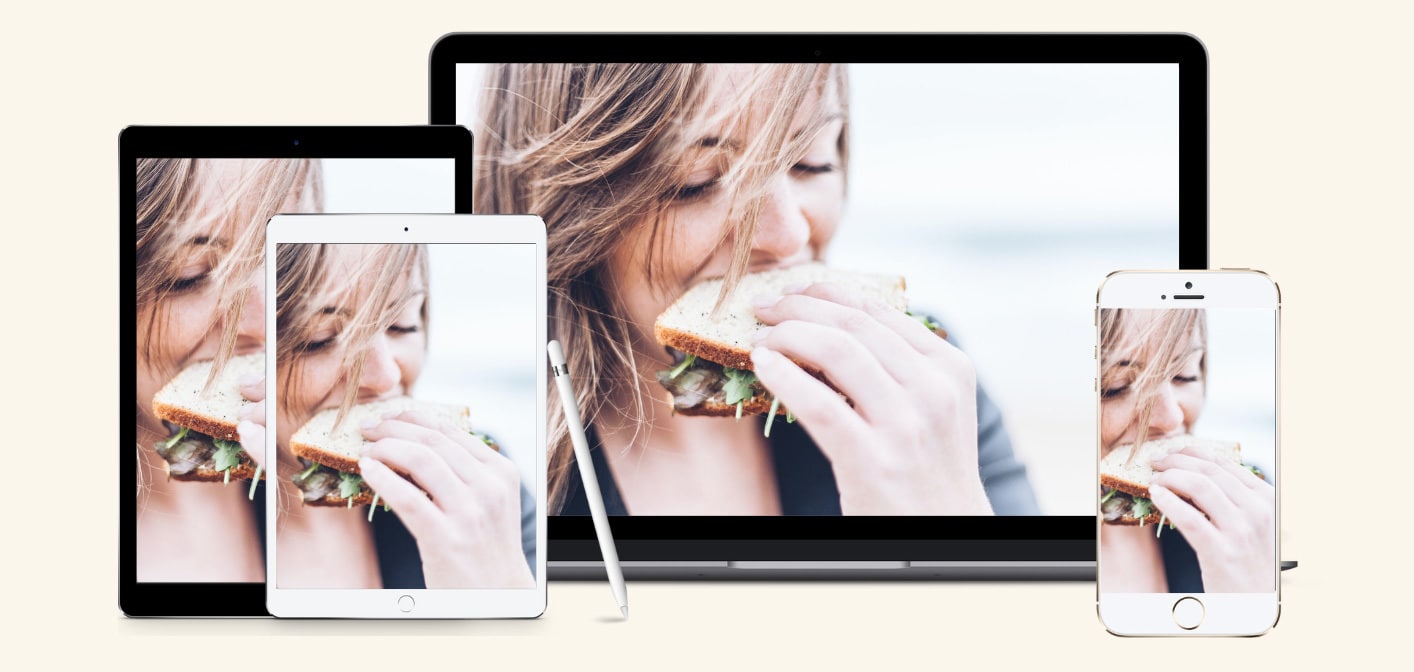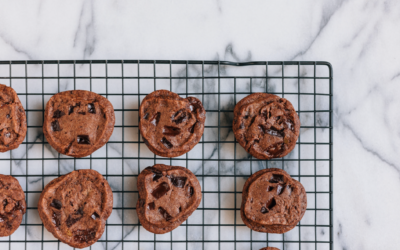So…what is Intuitive Eating
Why try Intuitive Eating?

So how do you actually start Intuitive Eating?
Developed by dietitians Evelyn Tribole and Elyse Resch in 1995, Intuitive Eating is evidence-based with 10 principles underpinning it (3).
Below, I have outlined the 10 principles and some tips to get started implementing them.
1. Reject the Diet Mentality
Unfollow any social media accounts that promote weight loss and push unrealistic body standards. Toss out diet plans, magazines and books that once graced your bookshelf. It’s time to break up with diet culture for good so you can allow Intuitive Eating to become part of your life.
2. Honour Your Hunger
Nourish your body with the right amount of energy to avoid going into starvation mode. Allowing yourself to become excessively hungry triggers a natural intense desire to eat, often leading to unintended binge eating. Try not to skip meals or have long gaps in between eating which can leave you feeling ravenous!
3. Make Peace with Food
Give yourself permission to eat ALL food! No single food is going to make you healthy or unhealthy, and restrictive eating can often lead to extreme feelings of deprivation. This often leads to binge eating which can fill you with guilt. No food should be “forbidden”.
4. Challenge the Food Police
Stand up to the Food Police in your head who create unrealistic food rules (e.g. no sugar, dairy, gluten, eating after 6pm, counting carbs). The Food Police often let you think that only healthy eating is good and eating cake is bad. It’s time to give these guys the flick!
5. Respect Your Fullness
When was the last time you stopped eating when you were comfortably full? Feeling BETTER for eating? When stuck in the diet mentality, we can often swing from being overly hungry (through restriction) all the way to being stuffed.
With intuitive eating, no foods are off limits and there are no rules. You can therefore feel safe in the knowledge that you can eat as much as you need to feel comfortable right now, and eat again when your body is ready for it.
6. Discover the Satisfaction Factor
Eating rice cakes, kale crisps and low-calorie cereal bars probably aren’t going to leave you feeling satisfied. If you’re out at dinner and feel like ordering the chips, order them! If you deprive yourself of the thing you really feel like most, you are fuelling the restrictive diet mentality, which at some point will likely lead to feeling out of control around food.
7. Honour Your Feelings Without Using Food
Emotional eating is perfectly natural and is usually an act of self-care. It should not fill you with guilt. As you move through the intuitive eating journey, honour your hunger and remove the forbidden of foods, emotional eating can dissipate. However, if food is still your only or main coping mechanism, we can work together to identify other ways to soothe your emotions that aren’t just with food.
8. Respect Your Body
It’s time to accept that your body shape and size is special and unique. Your genes are set in stone, so being critical about something that you can’t change is not a helpful exercise. Focus on all the wonderful things your body can do or has done to help rediscover self-love.
9. Exercise – Feel the Difference
Find movement that you love and do it as much or as little as you wish. Ditch rigid exercise plans and certainly don’t pursue activities that you don’t enjoy. If you find movement that you makes you feel good, you’ll automatically want to do it more often without even realising!
10. Honour Your Health
There is no such thing as eating perfectly. It is about making progress to consuming a variety of foods that make your body feel well and also satisfy your tastebuds. It turns out that most people find eating a nutritious balanced diet feels good! And it is about doing this consistently over time.
If you would like some more in depth information on how to implement these, head to my other article with tips on how to start intuitive eating.

With this, please keep in mind that Intuitive Eating is a nuanced framework and how it is applied depends on where you are at as an individual. I would recommend reading the Intuitive Eating book for more detailed info and/or seeking support from a Certified Intuitive Eating Counsellor.
So you’re interested in Intuitive Eating but have some reservations?
Embracing Intuitive Eating can be more of a challenging process than just being given a diet plan or set of rules. But it’s a way to find true freedom so you never have to go back to diets again. Of course, diets and the scales will always be there to go back to…
Here are some answers to common fears:
“If I give myself permission, I may never stop eating”
As a result of years of chronic dieting and under-eating it can be hard to trust that you will ever stop eating. As you move through intuitive eating there may be a short period of time where you eat more than you desire. This is totally normal, and a natural response to restriction. When you start learning to trust that food is ALWAYS available, and there are no weird conditions on this, you will start to trust that you will only eat as much as you need.
“I don’t know what or how to eat”
When you actually stop and pay attention to what you are eating, you may realise that you don’t even enjoy those foods! But rather than being concerned about what to eat, use intuitive eating to explore different kinds of foods and flavours. This is a great opportunity to figure out what you like to eat rather than what you think you should eat.
“If I let myself eat whatever I want, I might lose control”
Imagine if I said you can eat whatever you want all day, every day. You may think you would never stop yourself eating chocolate chip cookies, wine, cheese, crisps and all the foods you consider ‘bad’. Let’s see what happens if I give you an endless supply of cookies.
- Day 1, you would eat a lot.
- By Day 2, you may still eat a lot, but less than Day 1.
- Day 3, you’d most likely eat less than Day 1 and 2.
- After a few days, you will start to crave other foods.
This process is called habituation and is another key part of the Intuitive Eating practice.
At the end of the day, the most important thing to remember about Intuitive Eating is that it is not about eating a perfect diet – there is no such thing! The goal is to eat a variety of nutritious food with some ‘play foods’ that truly satisfy you. To remove the noise in your head and make peace with food and your body, so you can move on with other things that matter more in life.
For more on how to start intuitive eating check out my free download This will guide you through some of the first steps to support you through your food problems. You will learn how to stop food obsession, battling with emotional eating, stress eating, and some tips to start intuitive eating.







